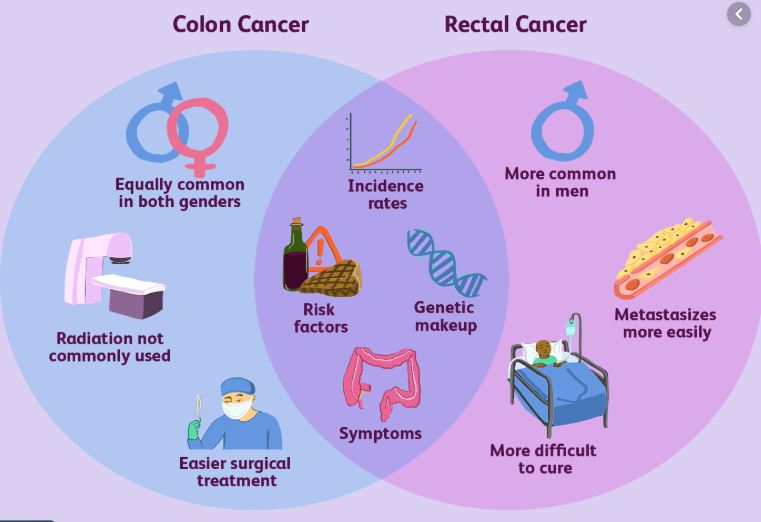
In the weeks after the succumbing of former Kibera MP Ken Okoth and former Bomet Governor Joyce Laboso to colon and colorectal cancers respectively, the country’s attention has been drawn to the two related cancers, whose prevalence in Kenya and Africa, oncologists say, is fast rising.
According to oncologists at the Nairobi Hospital, the cancer, which used to be associated with older people, is also increasingly being diagnosed among younger populations, not only in Kenya but around the world.
Dr. Chris Abeid, the acting CEO of the Nairobi Hospital, provides insights that he says are important in understanding any cancer.
“There are risk factors for cancer. One of them is tobacco smoking and the other excessive alcohol intake. Diet and cancer is now linked, specifically due to physical inactivity and obesity. If you are physically inactive or have a bad diet you tend to be obese. People with obesity are at a higher risk of developing cancer. For example, if you are obese you tend to produce more hormones, like estrogen, which increases the risk for estrogen-associated cancers,” he says.
For colorectal cancer, Dr. Angela Waweru, a consultant clinical oncologist at the Nairobi Hospital, reveals that there are two types of risk factors, genetic and behavioral.
“We divide the risk factors into two; Lifestyle/behavioral factors and genetic factors. Most of us treating patients would say behavioral factors include smoking, excessive red meat consumption, obesity and lack of physical activity. Obesity and lack of physical activity are usually the foremost, commonest risk factors for colorectal cancer,” Dr. Waweru explains.
Dr. Waweru adds that diet plays a large role in the development of colorectal cancer, noting, “For the longest time I used to explain to my patients that the disease has nothing to do with their diet but I am changing what I am saying now. That statement was based on my practice outside the country, but when it comes to Kenya you realize our regulatory bodies like KEBS are not doing a good enough job. We need better regulations”.
Dr. Nazik Hammad, a consultant oncologist from Canada, who specializes in the treatment of colorectal cancer, agrees that diet is a large factor in the development of colorectal cancer, “We are diagnosing more cases. Colorectal cancer is being associated with a change to western diet. People are adopting a more meat-based diet instead of a grain-based diet. Physical inactivity is also a factor”.
Dr. Waweru also notes that some individuals are genetically predisposed to colorectal cancer, stating, “For genetics, lynch syndrome causes colorectal cancer but it is almost overstated in Kenya. Only about one percent of patients, i.e. one in 100 have genetic-linked colorectal cancer”.
However, the oncologists note that some people lack lifestyle risk factors but still go on to develop the cancers.
Dr. Hammad further explains that more young people are developing colorectal cancer, noting, “We call it a disease of older people as most patients are in their 60s and 70s. We believe that men are more affected than women. Having said that, there has been a large change in the epidemiology recently. Colon and rectal cancer are rising among young people all over the world”.
“For some reason, women are getting right-sided colon cancer starting age 67 and above and we believe it may be related to estrogen,” Dr. Hammad adds.
By the time colorectal cancer produces symptoms, it is a fairly large tumor. Commonly there are changes in bowel behaviour, from diarrhea, generalized abdominal pain, constipation, unintentional weight loss, poor appetite. These symptoms mimic so many other illnesses,” Dr. Waweru says, explaining why many patients with colorectal cancer are not diagnosed fast enough.
“The main test to diagnose colorectal cancer is a colonoscopy endoscopy. That is where the tumor is found. A biopsy can confirm if it is malignant. Further tests, including blood tests and CT scan, will follow to determine the presence of cancer outside the colon. That information is useful to know the stage of the cancer and identify the treatment. The earlier the cancer is detected, the easier it is to treat and cure,” Dr. Waweru explains.
For early stages, patients only need surgery, while for stage two colorectal cancer, the treatment is unique, depending on the patient’s cancer. For stage four, the cancer usually has spread beyond the colon, often to organs like the liver. However, Dr. Waweru assures that there is hope for such patients.
“Most people would hear stage IV and immediately think of death. We want to put out the message that we have stage IV long-term survivors. With aggressive treatments that are now available, we have stage IV patients surviving for years,” Dr. Waweru assures.
According to Dr. Hammad, the treatment of cancer is not too demanding in terms of esoteric equipment and drugs. She states, “We need good infrastructure. We need to understand, for instance, what is the pattern and natural history of colorectal cancer in Africa and the best way to do that is to support existing or build better registries in order to capture what is happening out there to our patients”. Still, she admits that the treatment of the cancer remains challenging even in high-income countries.
Dr. Waweru, however, notes that most oncological treatment in the country is restricted to Nairobi, denying many patients across the country access to basic therapy, which can help save lives.
 The Standard Group Plc is a multi-media organization with investments in media platforms spanning newspaper print
operations, television, radio broadcasting, digital and online services. The Standard Group is recognized as a
leading multi-media house in Kenya with a key influence in matters of national and international interest.
The Standard Group Plc is a multi-media organization with investments in media platforms spanning newspaper print
operations, television, radio broadcasting, digital and online services. The Standard Group is recognized as a
leading multi-media house in Kenya with a key influence in matters of national and international interest.











